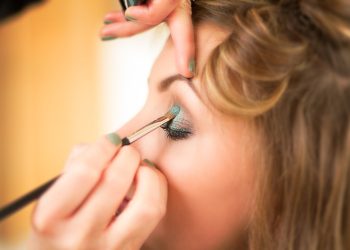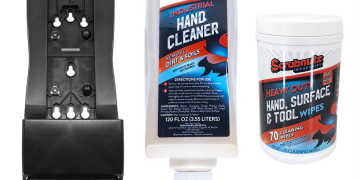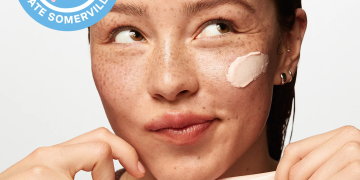Oily skin is a common concern that can lead to clogged pores, acne, and an unwanted shiny complexion. While it may feel frustrating to manage, oily skin also has its advantages, such as a slower aging process due to natural hydration. Understanding the causes of oily skin and adopting the right skincare practices can help you achieve a balanced, healthier complexion. This guide outlines effective methods to treat and prevent oily skin without compromising its natural protective benefits.
What Causes Oily Skin?
Oily skin occurs when the sebaceous glands in your skin produce excess sebum. Sebum is a natural oil that helps moisturize and protect the skin, but overproduction can lead to issues such as enlarged pores, blackheads, and acne. Common factors that contribute to oily skin include:
- Genetics: If your family has a history of oily skin, you are more likely to experience it.
- Hormonal Changes: Fluctuations in hormones during puberty, menstruation, pregnancy, or menopause can trigger excess oil production.
- Climate: Hot and humid weather often exacerbates oily skin.
- Overwashing or Over-Exfoliating: Stripping the skin of its natural oils can signal the sebaceous glands to produce even more oil as a protective response.
- Improper Skincare Products: Using heavy or pore-clogging products can worsen oiliness.
Building an Effective Skincare Routine for Oily Skin
A tailored skincare routine is essential for managing oily skin and preventing breakouts. Here’s a step-by-step guide:
1. Cleanse with a Gentle, Foaming Cleanser
Start your routine with a sulfate-free foaming cleanser to remove dirt, oil, and impurities without over-drying your skin. Look for ingredients like:
- Salicylic Acid: Penetrates pores to remove excess oil and prevent acne.
- Niacinamide: Reduces oil production and soothes inflammation.
- Tea Tree Oil: Offers natural antibacterial properties.
Wash your face twice a day—morning and evening. Avoid washing more frequently, as this can lead to overproduction of oil.
2. Use an Alcohol-Free Toner
Toners help to refine pores and balance the skin’s pH. Opt for alcohol-free formulations with ingredients like:
- Witch Hazel: Controls oil without over-drying.
- Aloe Vera: Provides hydration and soothes irritation.
- Beta Hydroxy Acids (BHAs): Gently exfoliate and clear pores.
Apply toner with a cotton pad or gently pat it into the skin with your hands.
3. Exfoliate Weekly
Exfoliation removes dead skin cells that can clog pores and lead to breakouts. For oily skin, chemical exfoliants are often more effective and less abrasive than physical scrubs. Consider:
- AHAs: Such as glycolic acid, to brighten and smooth skin.
- BHAs: Such as salicylic acid, to deeply cleanse pores.
Limit exfoliation to 1-3 times per week to avoid irritating the skin.
4. Apply a Lightweight Moisturizer
Contrary to popular belief, even oily skin needs moisture to maintain balance. Skipping moisturizer can cause the skin to overcompensate by producing more oil. Choose:
- Gel-Based or Oil-Free Moisturizers: These provide hydration without clogging pores.
- Hyaluronic Acid: Locks in moisture without adding heaviness.
- Aloe Vera: Soothes and hydrates.
5. Use Sunscreen Daily
Sunscreen is crucial for protecting your skin from UV damage, which can exacerbate oiliness and lead to premature aging. Look for:
- Oil-Free Formulas: To prevent clogged pores.
- Matte Finish: To control shine throughout the day.
Apply sunscreen as the final step in your morning routine, and reapply every two hours when exposed to the sun.
Advanced Treatments for Oily Skin
For more persistent or severe cases of oily skin, professional treatments can help regulate sebum production and improve overall skin texture:
1. Chemical Peels
Chemical peels use acids like salicylic or glycolic acid to exfoliate the skin, unclog pores, and reduce oiliness. Regular peels can help maintain a clearer complexion.
2. Microdermabrasion
This non-invasive procedure gently exfoliates the outer layer of skin, reducing oiliness and refining pores.
3. Laser Therapy
Laser treatments target sebaceous glands to decrease oil production and improve skin texture. These are often recommended for severe cases of acne or oily skin.
4. Prescription Medications
Dermatologists may prescribe topical retinoids or oral medications like isotretinoin to regulate sebum production in extreme cases.
Lifestyle Changes to Manage Oily Skin
Skincare products are only part of the solution. Adopting healthy lifestyle habits can significantly impact oil production and overall skin health:
1. Stay Hydrated
Drinking plenty of water helps regulate oil production and keeps the skin hydrated from within.
2. Eat a Balanced Diet
- Limit Greasy and Sugary Foods: These can trigger excess oil production.
- Incorporate Antioxidant-Rich Foods: Berries, green tea, and spinach combat inflammation and promote clear skin.
- Consume Omega-3 Fatty Acids: Found in fish, flaxseeds, and walnuts, these reduce inflammation and balance oil production.
3. Avoid Touching Your Face
Frequently touching your face transfers bacteria and oils from your hands, leading to clogged pores and breakouts.
4. Manage Stress
Stress triggers hormonal fluctuations that can increase oil production. Practice relaxation techniques such as yoga, meditation, or regular exercise to reduce stress levels.
5. Clean Your Makeup Tools
Dirty brushes and sponges harbor bacteria that can worsen oily skin and cause breakouts. Clean them regularly with a gentle cleanser.
Common Myths About Oily Skin
1. “Oily Skin Doesn’t Need Moisturizer.”
Skipping moisturizer can worsen oiliness as your skin tries to compensate for dehydration. Always use a lightweight, non-comedogenic moisturizer.
2. “You Should Wash Your Face Multiple Times a Day.”
Overwashing strips the skin of its natural oils, prompting it to produce even more oil. Stick to cleansing twice daily.
3. “All Oils Are Bad for Oily Skin.”
Not all oils are pore-clogging. Some, like jojoba oil, mimic the skin’s natural sebum and can help regulate oil production.
Long-Term Benefits of Managing Oily Skin
While dealing with oily skin can be challenging, a consistent skincare routine and healthy habits can lead to significant improvements. Proper management reduces the likelihood of acne, minimizes the appearance of pores, and helps achieve a balanced, healthy complexion. With patience and persistence, oily skin can be transformed from a concern into an asset, providing a natural glow and protection against signs of aging.










